Piaget’s New High Jewellery Proves The Brand Has Defined The Jewellery Watch
The brand’s 150th-anniversary high jewellery pays homage to its groundbreaking 21st Century Collection from 1969—at just the right time.

It’s no secret that Piaget’s vintage watches are enjoying the spotlight. Stone dials, sleek dress silhouettes, funky gold shapes, and hand-etched details are again in demand, driving a niche but still a sizeable portion of the secondhand market.
The Swiss watchmaker has picked up on all of the vintage buzz. But to say that it’s taking its cues from the secondhand market belies the influence that the brand has long held in the realm of jewellery watches and design innovation. That Piaget chose to revisit its groundbreaking 21st Century Collection to commemorate its 150th anniversary in high jewellery and watches this year says a lot about the identity of the brand and its unique place in the watch market as it looks to a future where watches and jewellery—two adjacent but very different markets—become more intertwined with both each other and the larger fashion world.
Piaget did not invent jewellery watches: The hybrid of jewellery and timepieces dates back to the end of the 1500s after theologian and Protestant Reformation leader John Calvin banned the wearing of jewellery in Europe. As a result, Swiss watchmakers began to explore ways precious metals and materials could be disguised in “pocket clocks,” which, much later, morphed into wristwatches. Jewellery watches increasingly became more ornate; early versions for women were crafted as necklaces, with the watch face upside down so that the wearer could covertly view the time. More modern examples of classic jewellery watches came during the Art Deco period (think diamonds and platinum with clean white dials and black numerals).
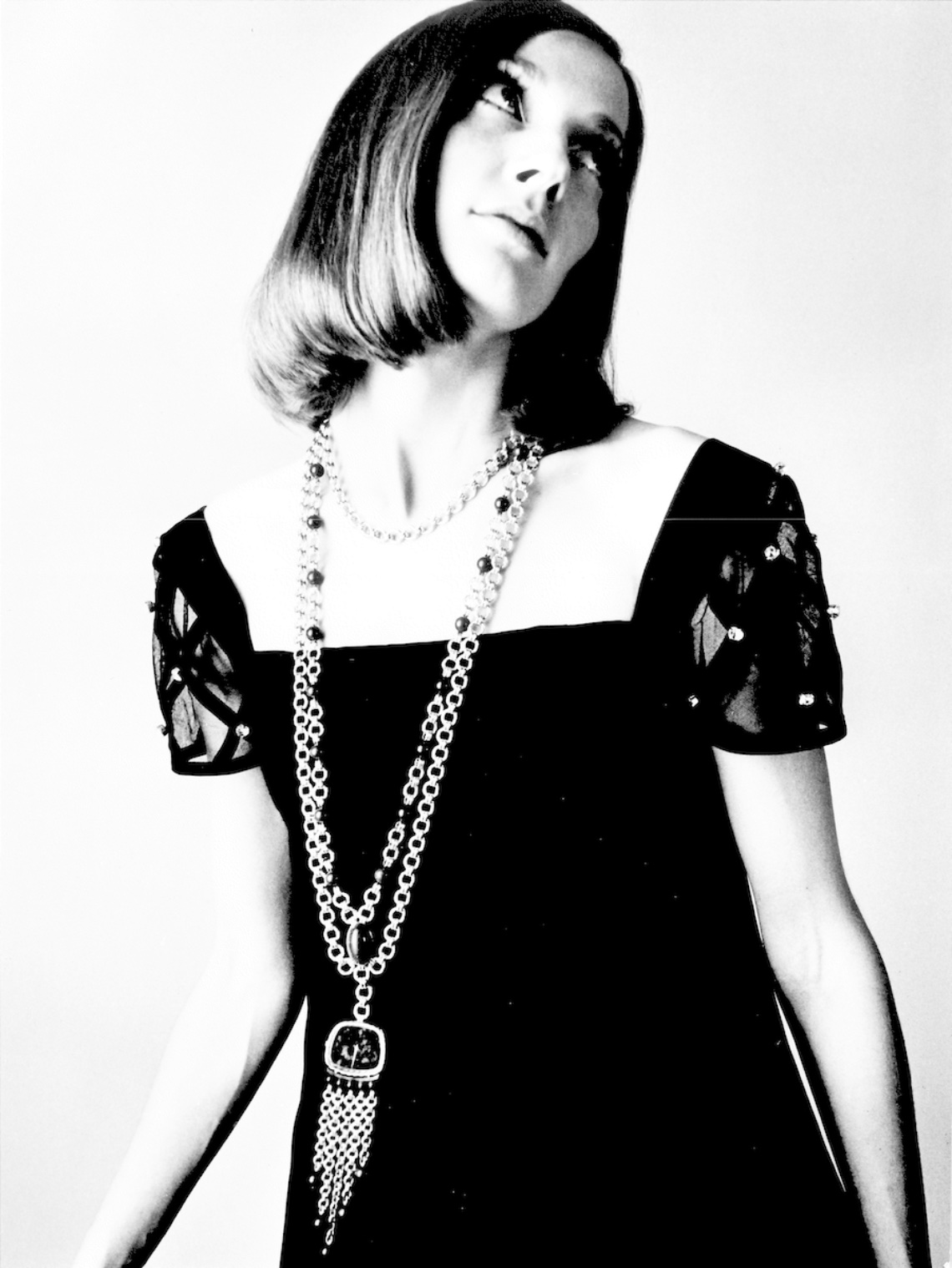
Fast forward to 1969: London’s Swinging Sixties movement was rapidly influencing fashion and youth culture, eventually coursing through the rest of Europe and the US. To capture the spirit, the Piaget family sent watch designers from its Swiss headquarters in La Côte-aux-Fées to Paris Fashion Week to figure out how to bring a fashion point of view to its timepieces. Their team took in runway shows, doing live sketches in the front row and later working from tear-outs of magazine fashion shoots to design timepieces onto models in ways that incorporated a full look. The brand’s 21st Century Collection was born—and with it, an entirely new way of looking at jewellery watches.
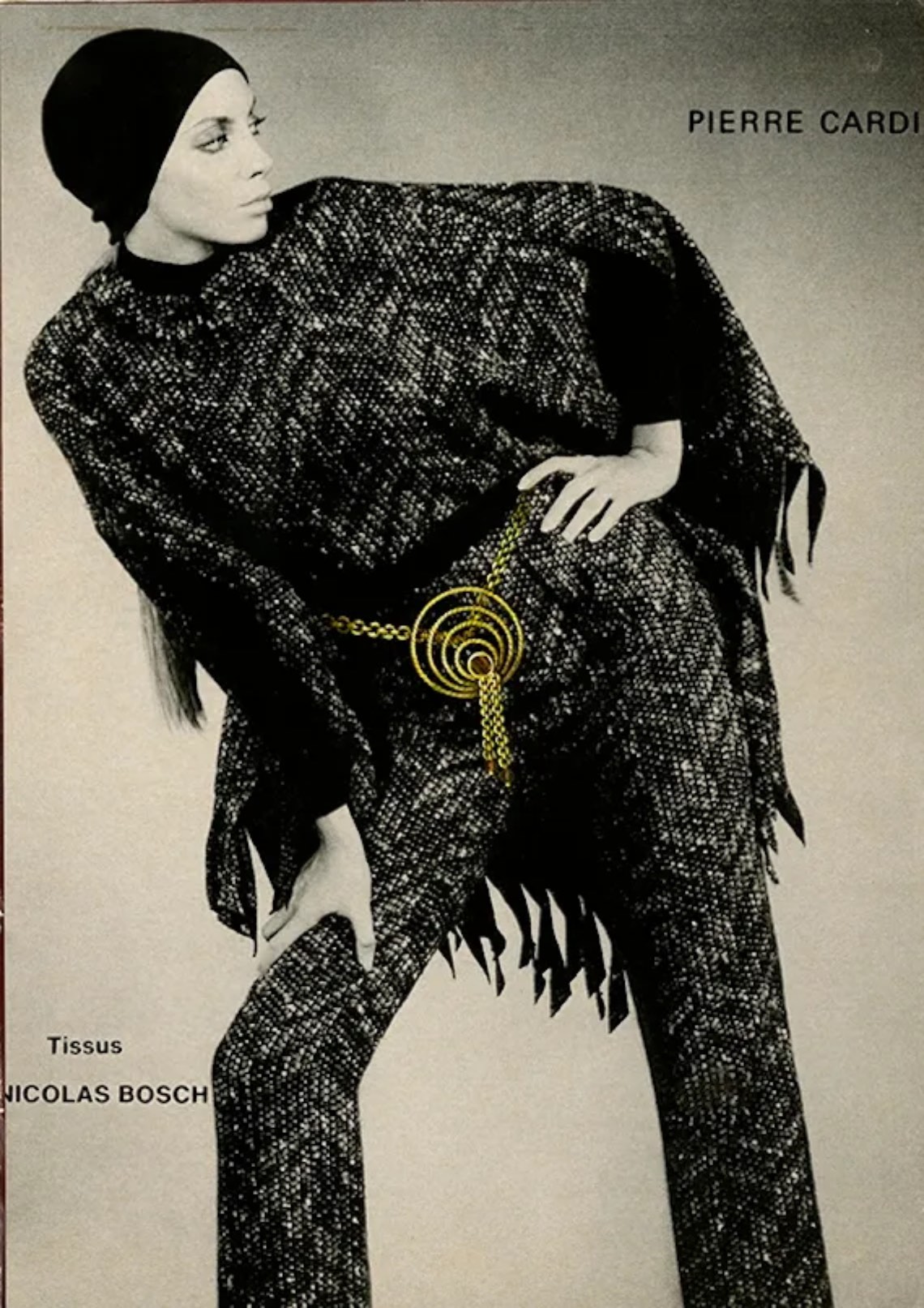
“They didn’t want to be just another watch brand. They embraced this period of creativity in the ‘60s and ‘70s with their know-how,” said Piaget CEO Benjamin Comer of the Piaget family’s decision to explore new ways to design and execute jewellery watches 55 years ago.
While the watchmaker has revisited its mid-century heritage here and there over the past decade (the popular hard stone dial Black Tie collection was reintroduced in 2014), Piaget took an even deeper dive into the 21st Century Collection to commemorate its 150th anniversary in this year’s high jewellery line, which debuted in Abu Dhabi. The collection ups the ante on the brand’s signature hard stone dials, which are no easy feat on their own—Piaget sometimes goes a hundred cuts of malachite, lapis lazuli, tiger’s eye, opal, or coral before arriving at one slice that’s precise enough to set as a dial with a movement behind it. Piaget’s creative director, Stephanie Sivrière, took on watches in 2016, in addition to jewellery, which has been spearheading since 2011.
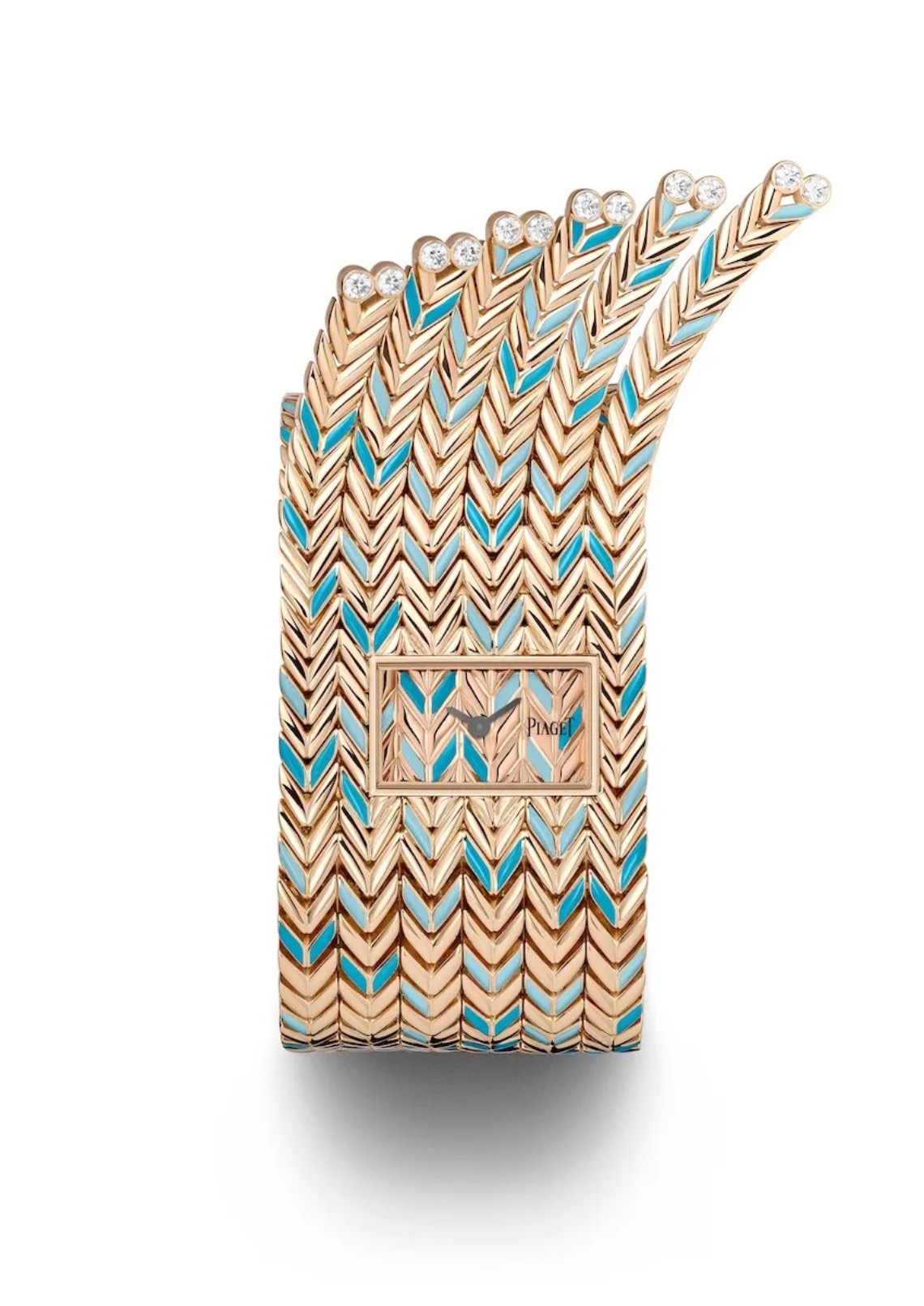
While the brand knows its buzz in the secondhand market, Piaget says it focuses squarely on new collections. “If our collections are strong now, they will be strong in the secondhand market in the future. We are building that now,” says Comar. The Piaget CEO notes that while the brand currently has some 1,200 heritage pieces in its archives, they are not for sale at the moment. “We see the momentum and we are very happy with it and very proud. We want to show that we are still matching in value.”
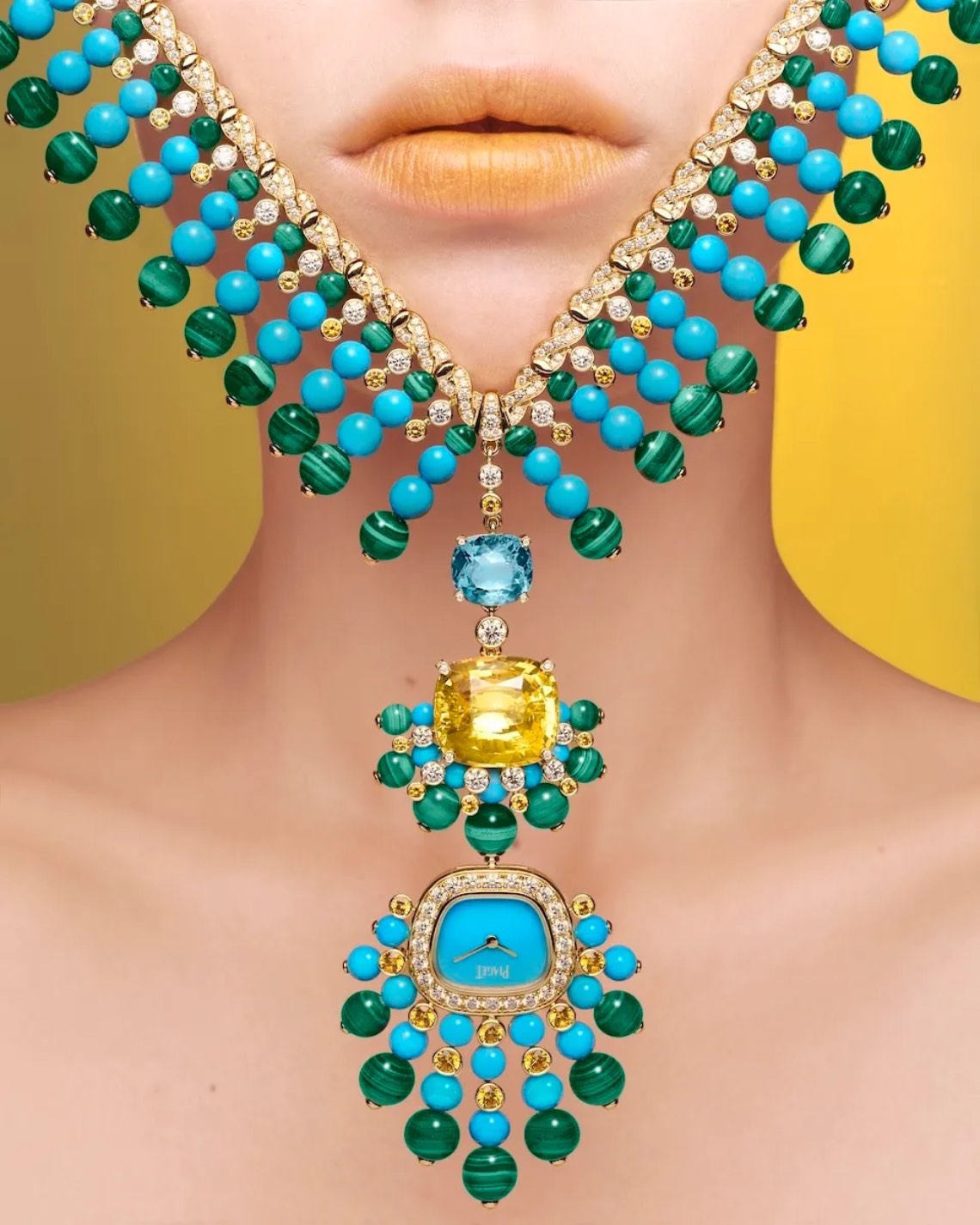
Standout pieces in the anniversary collection include a gold-fringed cuff set with turquoise beads and a matching turquoise stone dial (partially hidden by the fringe like a curtain) and an etched enamel dial wristwatch accompanied by 40 Colombian-origin emeralds and emerald-cut diamonds. Another watch uses a woven chevron motif of gold and enamel in an asymmetrical winged shape, with a dial in the same gold chevron pattern. Yet another, a gigantic bib of turquoise and malachite beads, yellow and white diamonds, cushion-cut yellow sapphire, and a cushion aquamarine, pays homage to the covert watch necklace with an upside-down timepiece pendant dangling at the end of it.
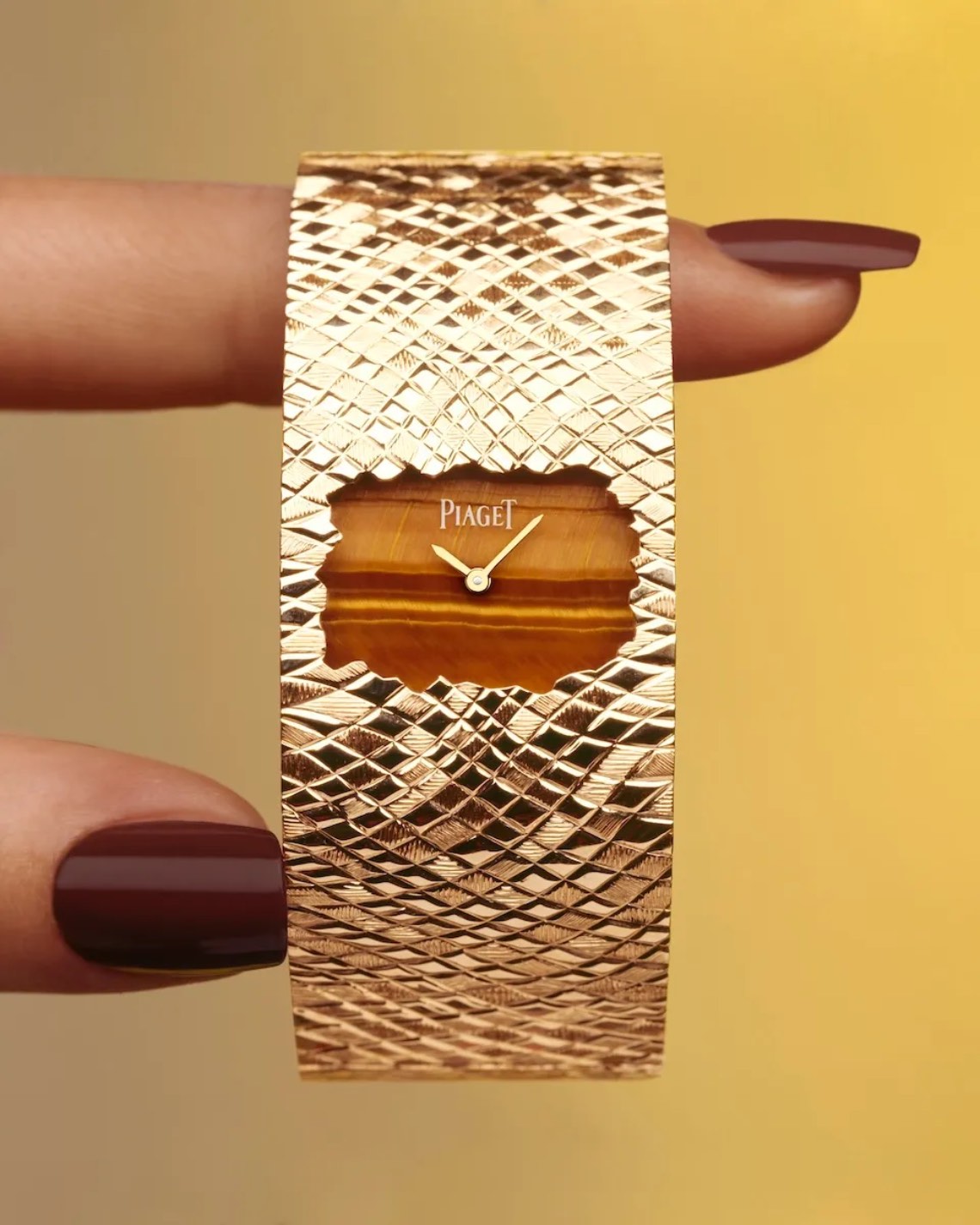
The brand also used the 21st Century Collection as inspiration for its world tour of the collection, which debuted at Paris Couture Week in July before making its way to Shanghai for an exhibition at the city’s Fosun Foundation in September, then to Abu Dhabi’s Emirates Palace, and Seoul’s Korea Furniture Museum, both in November.
“Abu Dhabi is becoming known in the region for its focus on culture,” said Fatti Laleh, Piaget’s director of brand image and communication. “Our concept is that collision of past and present, and Abu Dhabi is a very new city, but also very much rooted in tradition and heritage.”
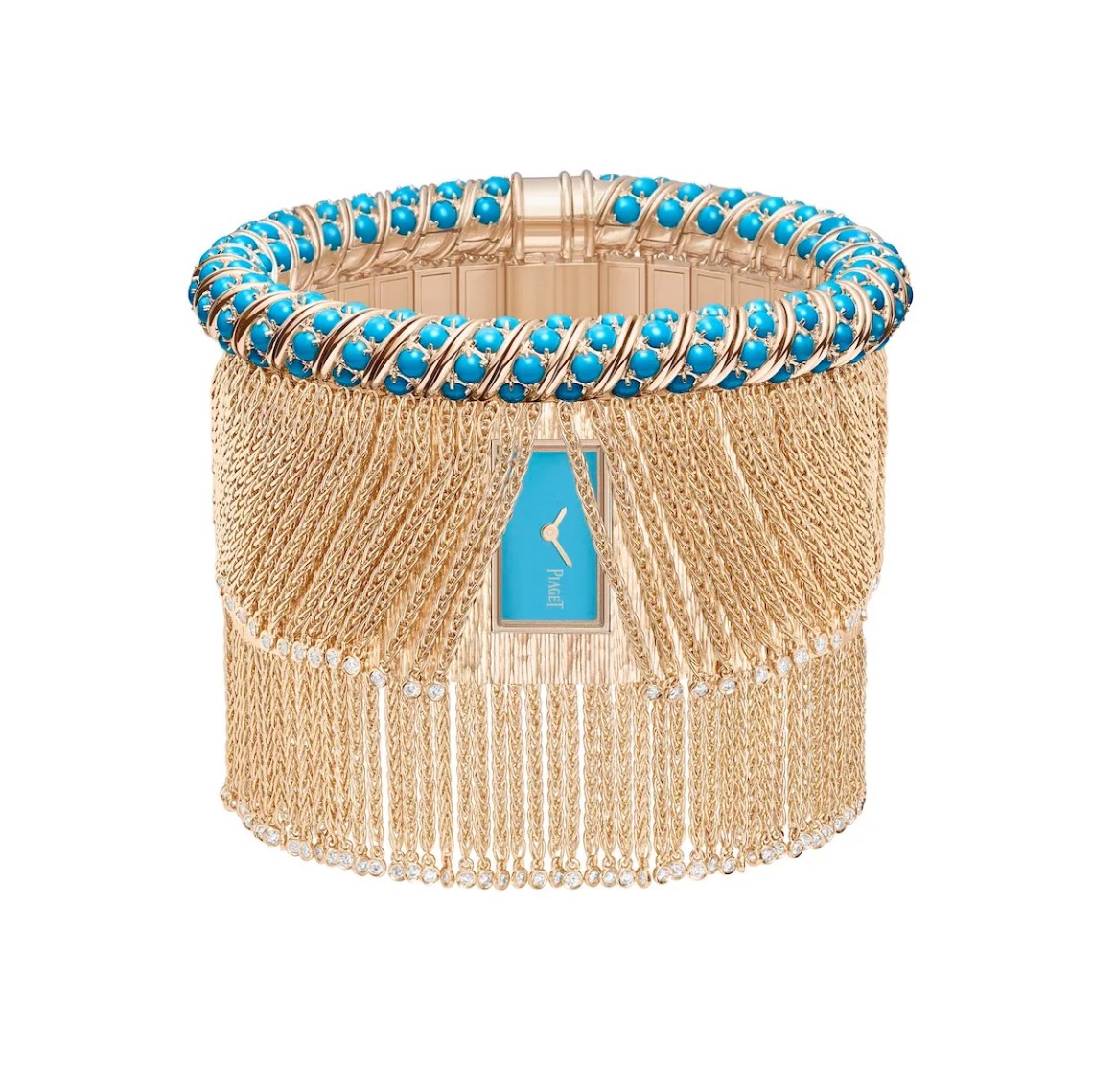
Piaget
Previously published on Robb Report USA.
Photos by Piaget












